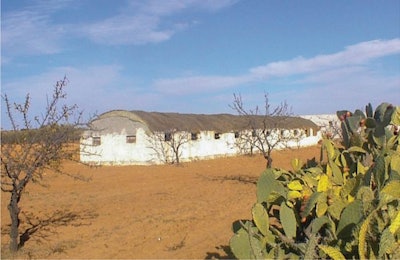
Oversupply, a lack of properly applied regulations, non-compliant farm development, disease outbreaks and low levels of integration have all acted to hamper the Tunisian poultry industry’s profitability, and resulted in producers facing financial difficulties and exiting the market.
The Tunisian poultry industry needs significant reform if the problems that have occurred since deregulation are not to continue, argues the Tunisian Poultry and Rabbit Association (GIPAC).
Tunisia ended production quotas for the poultry sector in 2012. Since then, however, uncontrolled expansion has brought its own problems. The results of a Ministry of Agriculture census published this year reveal that the country is significantly overproducing, and much of that production is coming from the unregulated sector.
GIPAC argues there is a need for reform at various levels.
As production has increased, so has the density of farms, increasing vulnerability to disease outbreaks. This has been accompanied, in some instances, by a failure to consider biosecurity or follow vaccination programs.
At farm level, it argues, producers need to improve biosecurity and training, with better implementation of sanitary controls and mandatory agreements with private veterinarians. Health agreements also need to be established with hatcheries.
In addition to addressing health risks, the industry also needs to become more integrated, better aligning breeders, producers and processors, to help match supply more efficiently with demand.
More also needs to be done to halt illegal poultry products entering the country, and to regulate or clamp down on unauthorized farm developments, particularly the use of converted greenhouses and polytunnels for rearing birds.
Within the egg sector, there is a pressing need to expand grading and certification along with sanitary standards, and it is hoped that reform across both sectors should help the industry to gain greater access to export markets to absorb surpluses.
Supply adjustment
As a first step to remedy the sector’s difficulties, the Ministry of Agriculture published the results of an industrywide census, the first since 2004.
It looked at the current state of poultry establishments and will form the bases from which a strategy to can be drawn up to better develop new farms, and improve existing farms, slaughterhouses and processing plants in a more hygienic and environmentally sustainable manner.
The survey revealed that total output in the country, including production from authorized and non-authorized producers, significantly exceeds demand.
Where broiler meat is concerned, Tunisia produces almost two and half times what the market requires, with a significant proportion of this coming from unregulated farms. In the egg sector, production stands at almost three times what is needed.
Unsurprisingly, producers have been selling meat and eggs for below production costs. For example, in October 2016, 1 kg of broiler meat was selling for TND1.90 (US$0.67), but cost TND2.30 to produce, while an egg sold for TND0.10 but cost TND0.14 to produce.
Measures have been adopted to help stabilize the market, which have included controlling the size of breeding flocks. For example, during 2016 and 2017, the number of layer breeders was cut from 68,000 to 60,000, although the size of the breeder flock has remained roughly stable.
However, to ensure greater stability for producers, more needs to be done to raise productivity and standards and to improve operational efficiencies.
Tunisian poultry sector at a glance
Farms (broiler, turkey and egg): 6,209
Total sales (2016): TND15 billion (US$5.1 billion)
Per capita poultry meat consumption: 18 kg
Per capita egg consumption: 160 pieces
Direct employment: 15,000
USGC aims modernize Tunisian feed, livestock industries
















